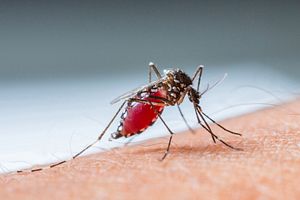Singapore has responded swiftly to the first ever case of Zika virus reported in the city-state, making it the latest among Southeast Asian states to be hit.
On Friday, authorities confirmed that the virus had affected a 48-year old male Singapore permanent resident who had traveled to the Brazilian city of Sao Paolo from March 27 to May 7. Brazil has been the country most affected by the recent outbreak of the Zika virus thus far, with more than 91,000 cases reported.
According to a joint statement released by the Ministry of Health (MOH) and the National Environment Agency (NEA), the patient had developed a fever and rash earlier in the week and tested positive for Zika on Friday after being admitted to the hospital. Zika is spread by the Aedes mosquito, which also spreads dengue.
Singaporean authorities have moved swiftly to ensure that the virus is contained and does not spread. MOH said it was screening the patient’s household members, while the NEA has intensified vector control operations to control the Aedes mosquito population in the area where the patient had lived.
The city state has also told its athletes headed to Rio de Janeiro for the Olympic Games in August to take necessary precautions to minimize risks and contact with mosquitoes.
The case makes Singapore the latest country in Southeast Asia to be hit by the virus. Last month, Vietnam reported its first cases (See: “Zika Virus Hits Vietnam”). According to the World Health Organization (WHO), the United Nations’ health body, apart from these two countries within the region, the Philippines, Thailand, Cambodia, and Laos have also all reported at least one case since 2013.
But the WHO has warned that the virus is likely to have spread more widely in the region than the number of cases would suggest since detection is often delayed, in part due to the fact that its symptoms are similar to other mosquito-borne viruses like dengue.
In response to the development in Singapore, neighboring Malaysia has stepped up its vigilance as well. Malaysia’s health ministry said monitoring has been enhanced at immigration checkpoints.
The Zika virus first grabbed international headlines in 2015, when thousands of reported cases in Brazil suggested a strong correlation with fetal brain deformities amongst the newborn children of infected pregnant women.
































